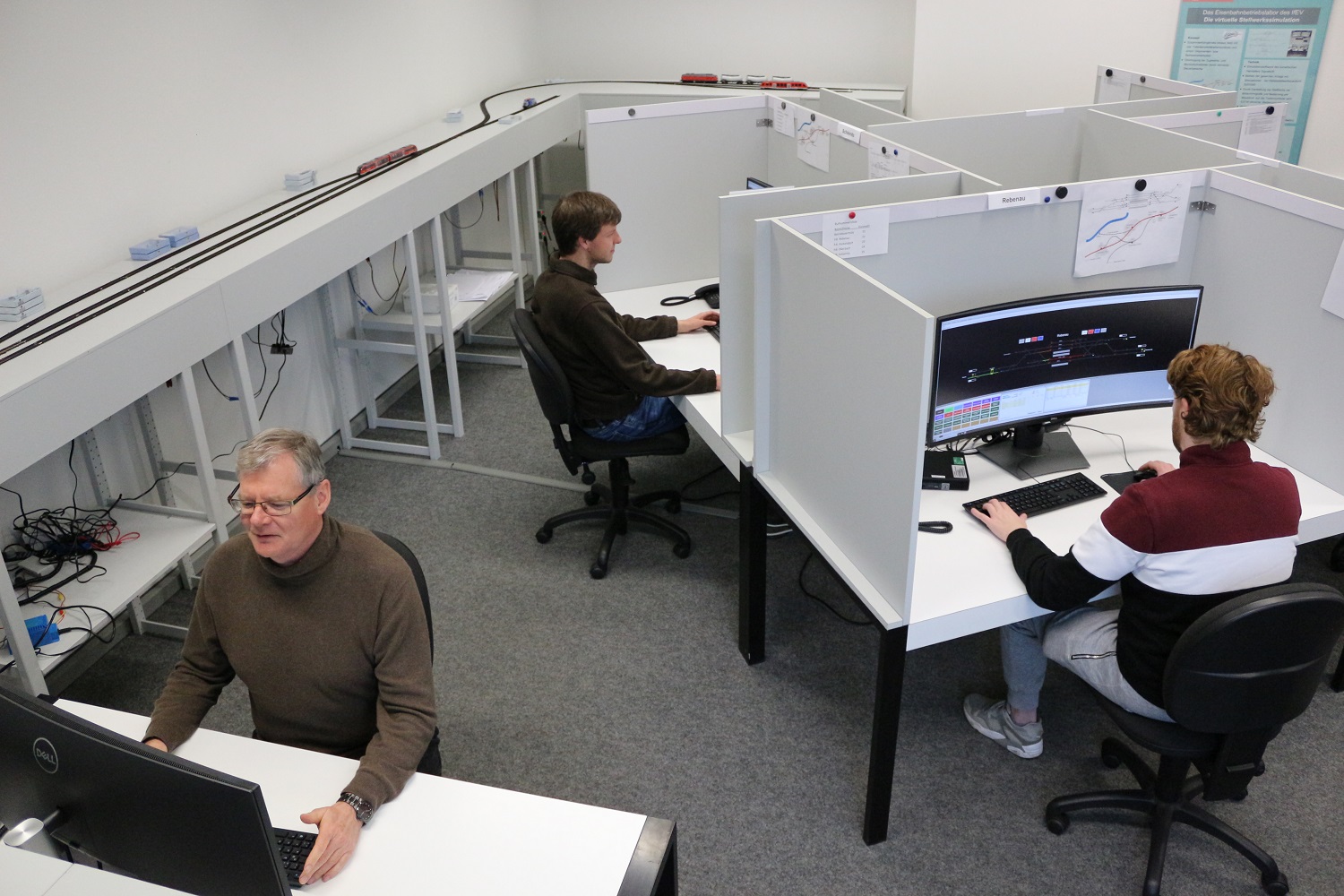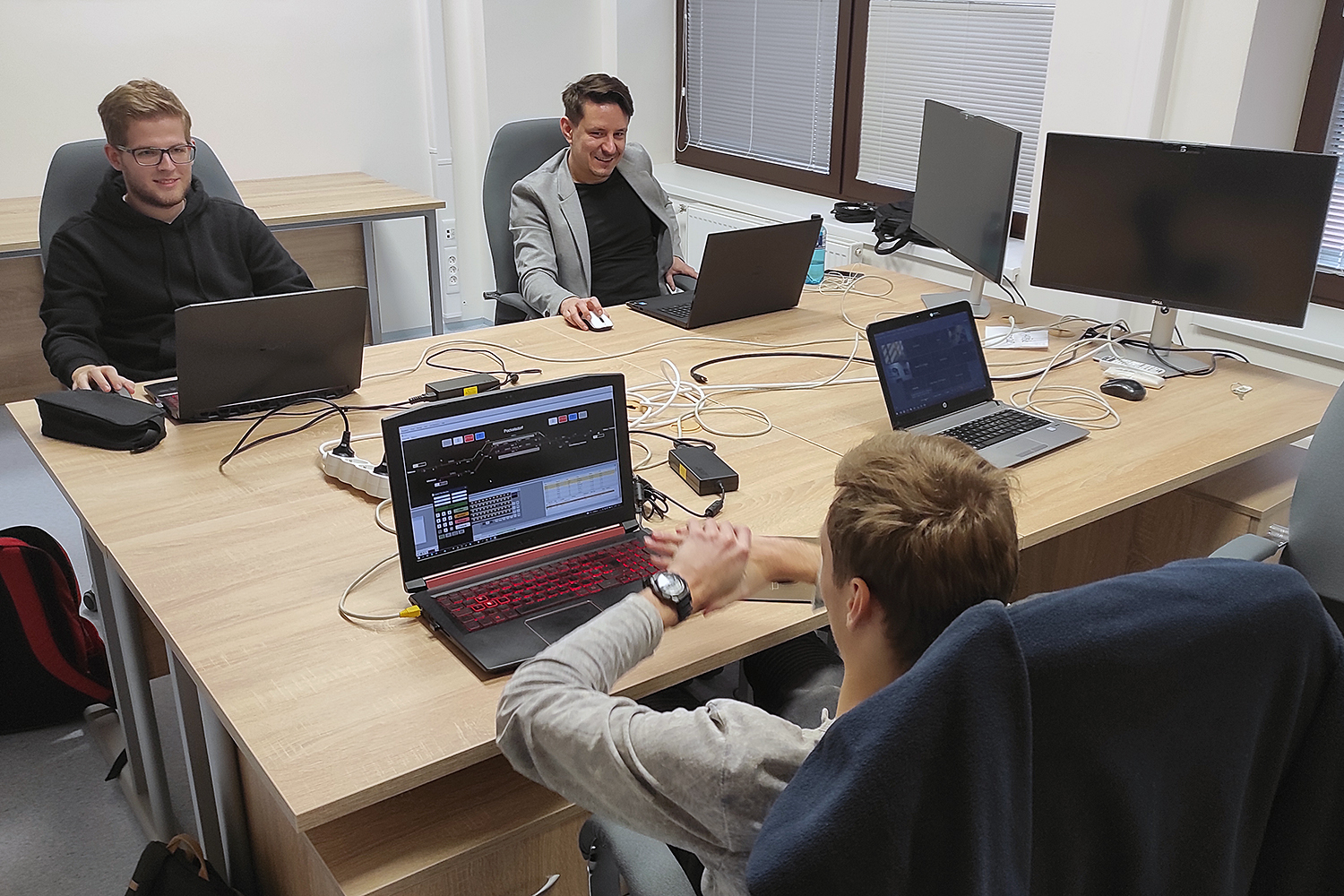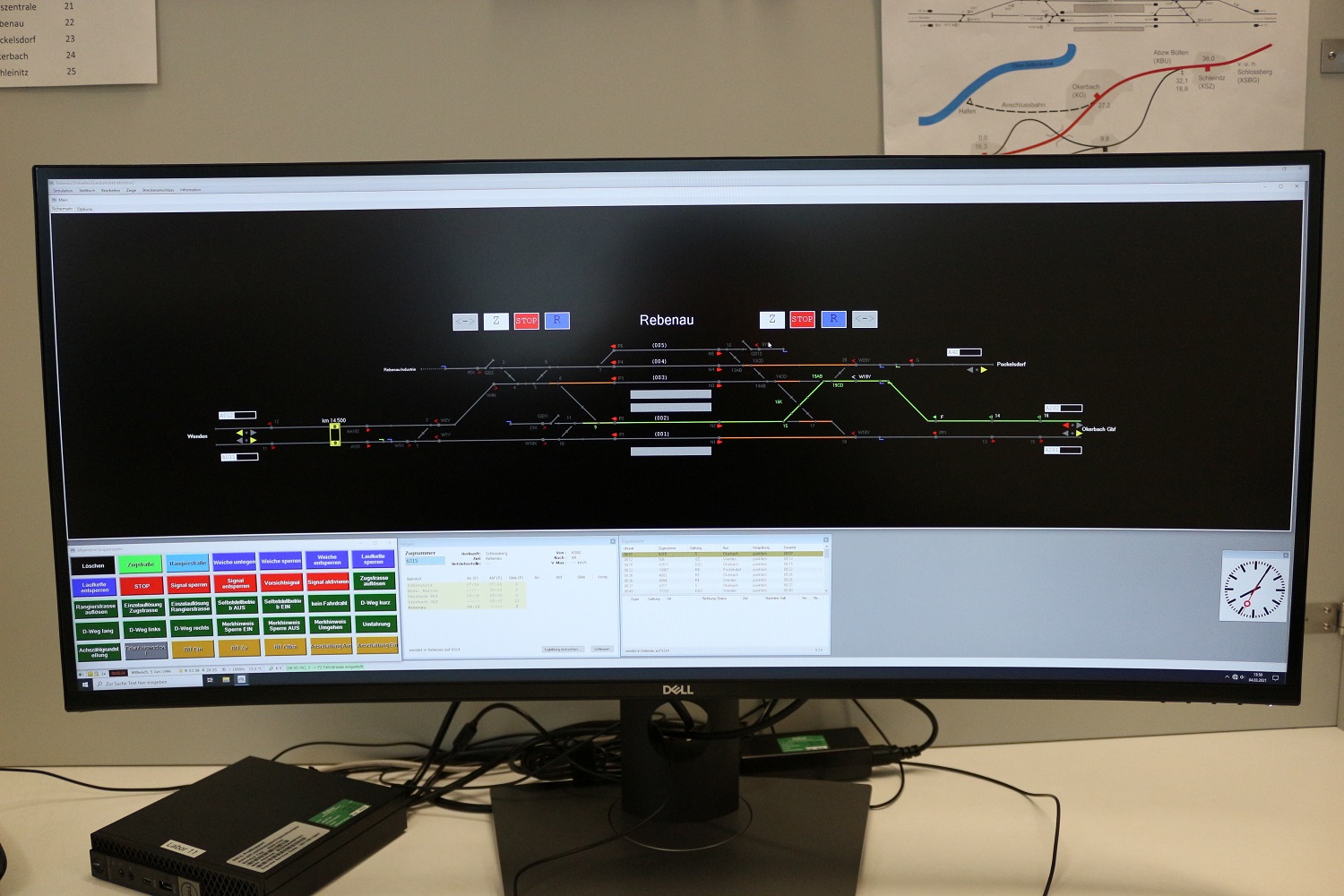Cross-country travel on the virtual railway network Digital laboratory exercise with the universities of Zagreb, Žilina and ČVUT Prague
The course is set: The first joint digital laboratory exercise of the Institute of Railway Systems Engineering and Traffic Safety (IfEV) with the Universities of Zagreb in Croatia, Žilina in Slovakia and CVUT Prague has been successful. In the Erasmus project “IDEALCAREL”, the teams tested how a course can work between different locations.

The virtual railway operations laboratory at the Institute of railway systems engineering and traffic safety. Picture credits: Volker Kesting/TU Braunschweig
The IDEALCAREL project (Inclusive digital education and laboratory training by connecting rail educational laboratories) was successfully applied for in 2021 via the EU’s call for proposals to foster digital education under the Erasmus+ programme. Together with the universities of Žilina and Zagreb, the IfEV wants to expand the hitherto predominantly national approach to railway education into a European research network. This includes, among other things, transnational online exercises to provide students with new learning experiences. ČVUT Prague was also involved in the first attempt with its railway department. Contact with the Czech university came about through a postdoc from ČVUT Prague who was conducting research at IfEV through an exchange programme.

The group from the University of Žilina during the digital lab exercise. Picture credits: University Žilina
What was the goal of the joint laboratory exercise? “First of all, we wanted to test how a digital course can work between locations in different countries,” explains Simon Söser from IfEV, deputy project leader of IDEALCAREL. “We also wanted to try out the format ourselves as well as the teaching material we developed, which we will later make available as Open Educational Resources material.” This includes, for example, a generic operating rule for railway operations and a handbook for trainers.
Working in cross-location groups

The joint online lecture was also transmitted to the seminar room at the University of Zagreb. Picture credits: University Zagreb
During a joint online lecture, which was also transmitted to seminar rooms at the universities in Zagreb and Žilina, there was first an introduction to the “Signalsoft” software. The researchers at IfEV also use this software in their railway operations laboratory. “The software offers the possibility to operate a virtual railway network from the traffic controller’s perspective. So you set the points and routes,” says Simon Söser.
After two days of individual work, during which everyone was able to familiarise themselves with the software, the first trial day finally followed. Although the teams initially worked in local groups in Prague, Žilina, Zagreb and Braunschweig on one day, each team also worked with a supervisor from a different university. “This worked to some extent. Since the local supervisors were more involved than planned,” says Simon Söser. In the end, all the groups were mixed.

The Rebenau workstation. The control centre was also operated in this form during the experiment. Bildnachweis: Volker Kesting/TU Braunschweig
“All in all, we were able to gain a lot of insights for digital teaching and work out strengths and weaknesses,” concludes Simon Söser. “In the structure with an introductory lecture and subsequent exercises, we were able to implement the course well. We also used the break-out rooms in Webex, so that I could jump back and forth while supervising the groups. I was surprised by the amount of supervision from the instructor’s side, which was more intensive than expected. We also had some new experiences with the software: in principle it worked, but not for everyone. Unfortunately, it also turned out that some of the laptop screens were too small. Therefore, when preparing digital teaching, one should not only focus on the software, but also on the hardware.”
